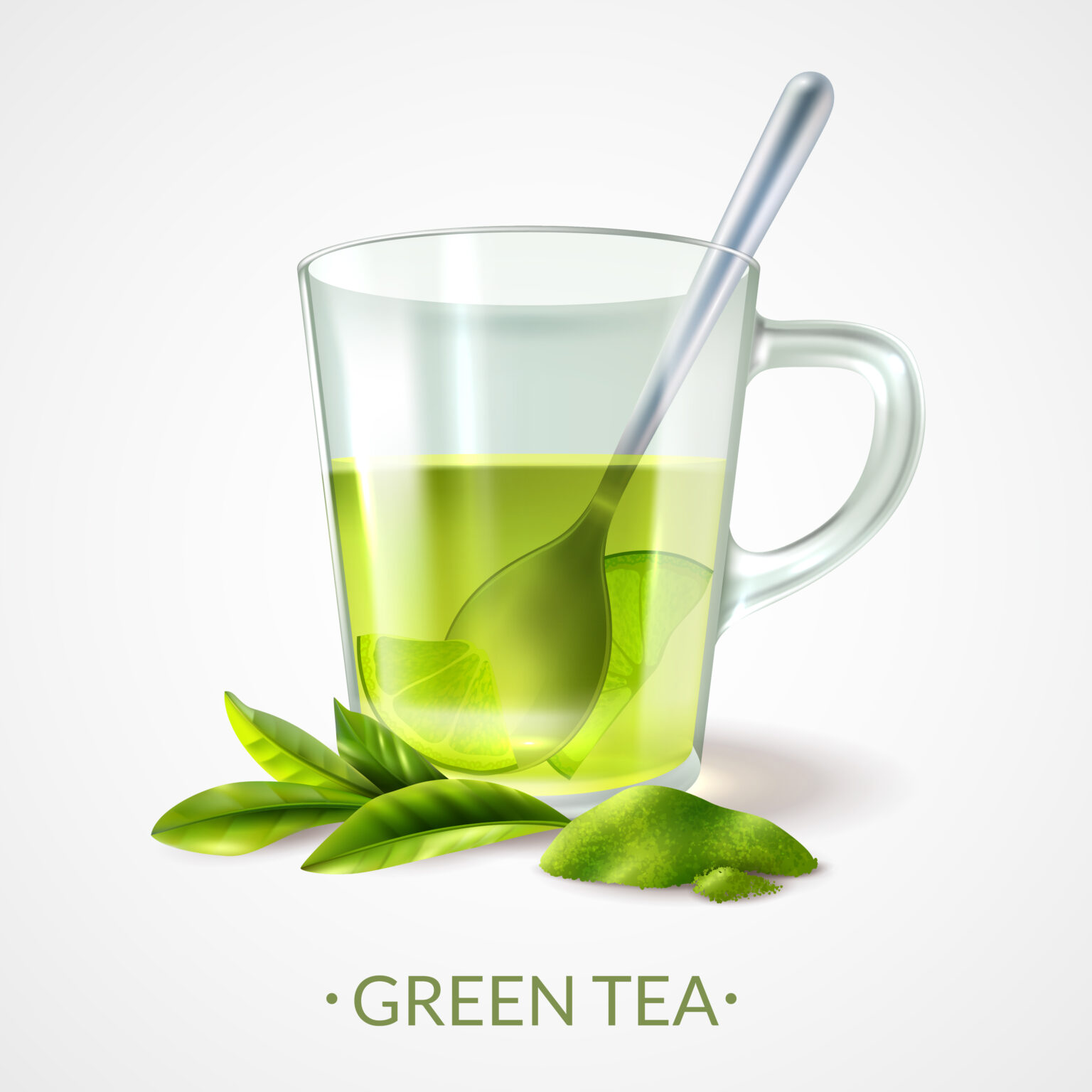Decaf green tea has many health benefits. It is rich in catechins and contains high antioxidant content. The antioxidants can protect the body from free radicals. Free radicals can damage cells and can cause chronic diseases. Catechins in decaf green tea can reduce the risk of cancer. It can help with different types of cancers. Decaffeinated green tea is also good for cardiovascular health. It is also helpful for brain health and cognitive functions. It is shown to have effects on weight reduction as well. It can be beneficial for stress, anxiety, and nervousness. It also promotes good sleep.
Regular decaf green tea extract also contains polyphenols, antioxidants, and flavonoids. Antioxidants can help fight against many serious diseases. They are especially good for cancer. These compounds have many health benefits. Decaf regular green tea can reduce inflammation in the body. Reducing arthritis and diabetes is also among the health benefits of green tea. They also help prevent neurodegenerative diseases. They protect the brain from ageing. It also protects against Parkinson’s and Alzheimer’s disease.
In this article, we will look at the top 5 health benefits of Decaffeinated Green Tea. Along with benefits, side effects are also mentioned. Read this article to get detailed knowledge about this drink.
Table of Contents
How to prepare decaffeinated green tea?
These steps should be followed to make decaf green tea:
- Boil water:
Water that has been brought to a boil. Utilizing cold, fresh water rather than previously cooked water is crucial.
- Cool the water:
Green tea should normally be prepared at a moderate temperature. This temperature is lower than black tea or coffee. After boiling, allow the water to cool for a few minutes before adding the tea.
- Add tea:
Fill a teapot or mug with one or two teaspoons of caffeine-free green tea.
- Steep:
Pour the boiling water over the tea and let it sit for 1-3 minutes.
- Strain the tea:
Enjoy your tea after straining it if you use loose-leaf tea. If desired, you can also include lemon or sweetener.
As a result, it’s always a good idea to refer to the package instructions or experiment with different brewing times and temperatures to find the ideal cup of tea for your taste. It is worth noting that the time and temperature for brewing the tea could vary. It can depend on the specific type of brand or decaffeinated green tea.
Different types of Decaffeinated Green Tea
There are numerous varieties of decaffeinated green tea, each with a special flavour and advantages. Some of the most typical varieties are listed below: There are numerous varieties of decaffeinated green tea, each with a special flavour and advantages. Some of the most typical varieties are listed below:
- Loose Leaf Decaffeinated Green Tea:
Loose-leaf tea comprises whole leaves processed and packaged without using tea bags. Decaffeinated green teas have a more complex and subtle flavour profile. It is frequently thought to be of superior quality. In the long run, loose-leaf tea is a more cost-effective solution since it may be made several times.
Decaffeinated Green Tea Bags:
Decaffeinated green tea can be prepared quickly and conveniently using tea bags. They contain tea that can be steeped immediately in hot water in pre-portioned servings. Compared to loose-leaf tea, this decaffeinated green tea is frequently less expensive and more accessible.
Matcha:
A sort of green tea that has been finely powdered is called matcha. It is well-known for its vivid green colour and earthy flavour. It is frequently used in traditional Japanese tea rituals. Decaffeinated matcha is available for individuals who prefer to enjoy the advantages of matcha without caffeine.
Genmaicha:
Japanese green tea, called genmaicha, is mixed with roasted brown rice. This tea has a toasted, nutty flavour and a mildly sweet aftertaste. For those who want to experience the flavour and advantages of this special tea without caffeine, decaffeinated genmaicha is available.
Sencha:
The flavour and scent of sencha, a classic Japanese green tea, are described as being grassy and vegetal. Decaf Sencha is available for individuals who prefer to enjoy the advantages of Sencha without caffeine.
Top 5 Health Benefits of Drinking Decaffeinated Green Tea
The following are the health benefits of decaf green tea.
1. Green tea can help in cancer prevention
Green tea contains a group of antioxidants called catechins. They can decrease the growth of cancer cells. They can even prevent DNA damage that can lead to cancer.
Many studies show that green tea consumption can reduce cancer growth. An observational investigation of more than 69,000 Chinese ladies found that customary green tea consumption can reduce the risk of colorectal cancer.
Anyone with cancer concerns should consult a healthcare professional for personalized advice and treatment.
2. Green tea can prevent type 2 diabetes
Various examinations propose that green tea utilization might stop type 2 diabetes. Dissimilar to black tea, green tea is rich in polyphenols. They are cancer-prevention agents that assist in developing insulin sensitivity.
The review dissected information from 40,000 Japanese participants. It founds that the individuals who drank at least six cups of green tea each day had a 33% lower chance of diabetes.
Another review in the British Journal of Nutrition found that green tea usage prompted a critical reduction in fasting blood glucose and haemoglobin A1c levels.
Green tea contains a compound called epigallocatechin gallate (EGCG). It has been displayed to further develop glucose digestion and insulin responsiveness.
3. Green tea can prevent heart diseases
There is proof that green tea utilization might gainfully affect heart well-being. It can assist with coronary illness. They have been displayed to assist with reducing inflammation. They further improve blood vessel function.
A study in the American Journal of Clinical Nutrition found that individuals who drank at least five cups of green tea daily had a 26% lower risk of death from coronary illness. One more review published in the European Journal of Epidemiology observed that green tea utilization was related to a lower risk of developing coronary disease.
Green tea contains catechins. They have been displayed to further develop cholesterol levels by diminishing LDL (“bad”) cholesterol and expanding HDL (“good”) cholesterol. A review in the Journal of the American Dietetic Association found that consuming green tea for a very long time prompted a critical reduction in LDL cholesterol.
4. Green tea can make you lose weight
There is proof to recommend that green tea utilization might affect weight reduction. It could be a useful addition to a healthy diet. Green tea contains catechins. They have been displayed to help digestion and increase fat consumption.
Different studies show that consuming green tea extract can help reduce body weight.
Green tea may also be particularly effective in combination with exercise. Consuming green tea extract and moderate exercise can lead to greater weight loss and fat burning.
However, one should not only rely on green tea for weight loss. Consuming large amounts of green tea may have negative health effects. It is important to consume green tea in moderate amounts. Talk to a healthcare provider before using it for weight loss.
5. Green tea can protect the brain from ageing
Green tea use may delay cognitive ageing. Antioxidants found in green can aid in reducing inflammation. They also lessen oxidative stress, which helps to prevent cognitive loss.
Another crucial component of green tea is L-theanine. It may enhance mental performance. Additionally, it may have calming effects on the brain.
Green tea is linked to a decreased risk of Alzheimer’s and Parkinson’s disease. Cognitive impairment may result from several illnesses.
The presence of catechins in green tea may contribute to its preventive properties. These are potent antioxidants that can aid in preventing free radical damage to the brain.
The brain’s blood flow can be enhanced by green tea. It may improve the oxygen and nutrient supply. As a result, it promotes sound brain activity.
Consuming green tea has helped elderly folks perform better cognitively. Memory, attentiveness, and processing speed are all improved.
Side effects of caffeinated green tea extract
Although green tea has many benefits, it also has some side effects. The following are the side effects of tea extract:
- Caffeine sensitivity:
Caffeine, which is present in green tea leaves, can make you anxious and nervous. It can make your heart beat faster. You might want to stick to decaffeinated green tea extract or reduce regular green tea consumption if you are caffeine sensitive. You could simply avoid this if the drink does not suit you.
- Stomach upset:
Green tea leaves can also irritate your stomach. Some people who consume green tea could get sick, vomit, or have diarrhoea. You should immediately tell your doctor if you experience any serious symptoms.
- Iron absorption:
Tannins, included in a green tea cup, may prevent iron from plant-based diets from being absorbed. Limit your green tea intake or drink it between meals if you are at risk of iron deficiency.
- Headache:
After drinking green tea, some people may get headaches, especially if they are caffeine sensitive. To avoid this, you should drink only a small amount.
- Interaction with medicines:
Blood thinners and several chemotherapy treatments, among other medicines, can interact with green tea. Before including green tea in your diet, it’s important to consult your doctor if you take any drugs. It can help you prevent drug interactions.
Conclusion:
Green tea is a healthy choice for many reasons. Regular, decaffeinated green tea extract has a high nutritional value. It can have numerous health benefits. It shows good effects on fat oxidation and body composition. Cardio-metabolic health is also shown to be improved with this.
Green tea consumption can help fight cancer due to its antioxidants. It can prevent several types of cancers. It is also good for people with type 2 diabetes. It can reduce insulin sensitivity. The EGCG helps in the absorption of glucose.
In humans, green tea is also healthy for cardiovascular health. It contains catechins that can reduce bad cholesterol and improve good cholesterol. It is also helpful for weight reduction. However, only green tea would not be enough. You have to engage in physical exercise to reduce weight faster.
It can reduce anxiety and nervousness. It also aids in good sleep. Green tea is pretty good and helps prevent cancer. However, the caffeine content should be checked before consuming it. Some people may feel side effects such as headaches, nausea, etc.


